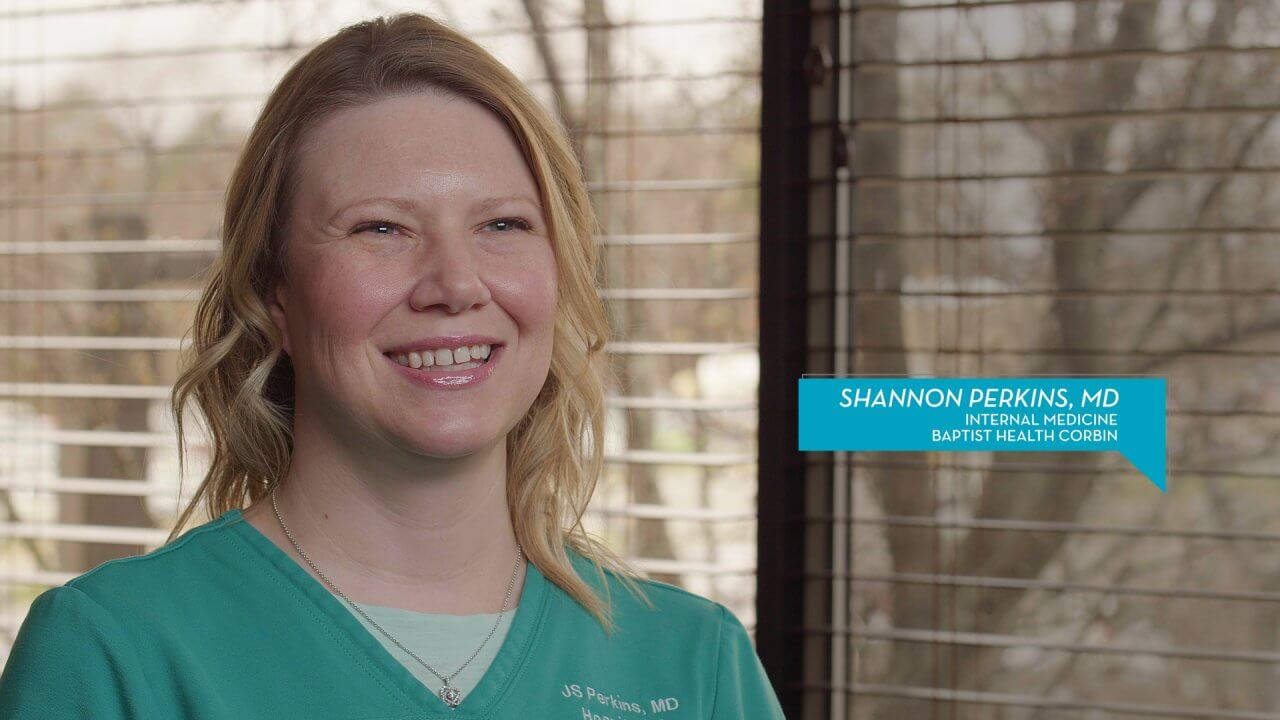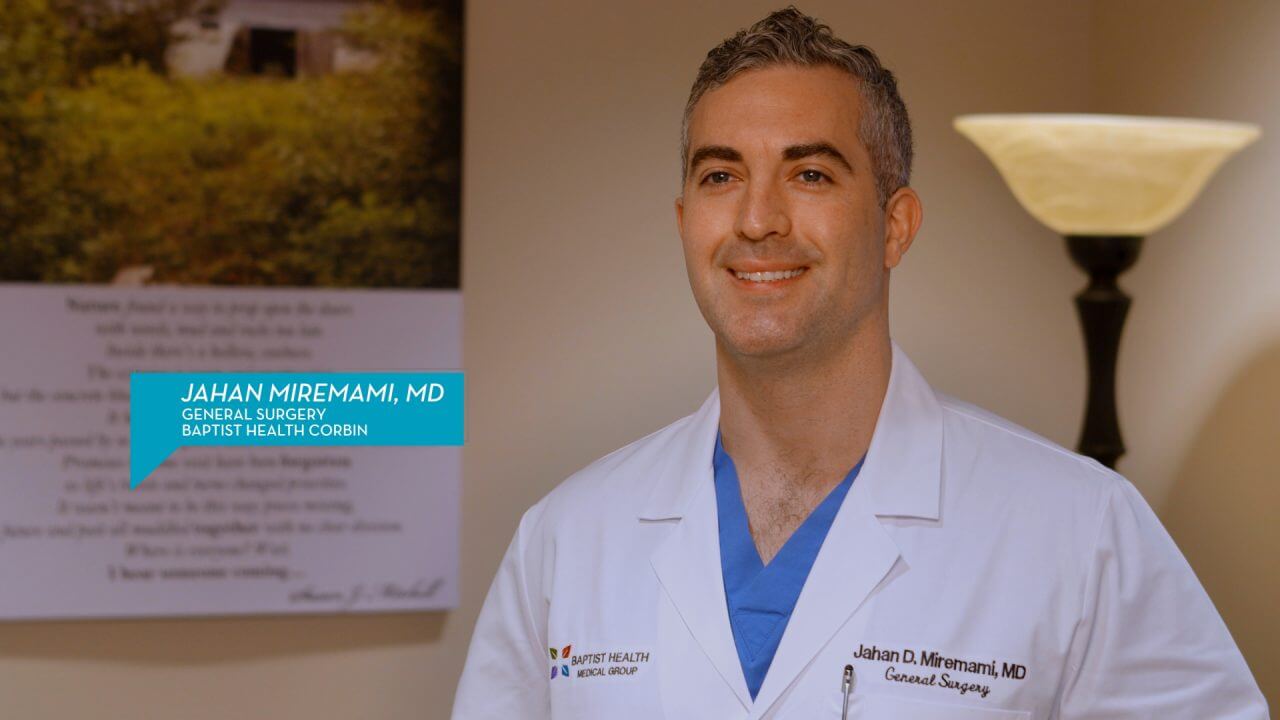Treating Kidney Stones
Baptist Health Corbin: Treating Kidney Stones
Urologist Christopher Steidle, MD, explains how kidney stones form, outlines ways to prevent them, and describes how doctors treat them when they are too large to pass.
Treating Kidney Stones Health Talks Transcript
Christopher Steidle, MD, Urology
Kidney stones occur — they can be something that you inherit. They can be something that you acquire because it’s dry, it’s a hot summer, you’re not drinking enough water, and the urine gets very concentrated, and crystals form, and they form a kidney stone. Sometimes, these small stones can pass into the urinary tract and can generally cause a lot of pain. Anybody that’s had a stone will remember it. When you have a kidney stone, the most important part is to characterize it. In other words, how big is it? Where is it? So, if the stone is small, like 3 millimeters, which is just the tip of a pencil, it generally will pass. We like you to pass the stone — if it is small, it’s better for your body to pass the stone. The bigger the stone, the more unlikely it is to get out of the kidney. If it’s in the kidney, we can generally use a crushing machine, or we can look up with a tiny scope called a ureteroscope and look at the stone and use a laser beam. Either way, they are both very, very effective. We don’t operate and make incisions anymore for kidney stones. The best way to avoid kidney stones and avoid having to see me is to drink a lot of water. That’s the most important thing. Just get rid of the pop. You do that in your life, and your chances of seeing me are going to drop 90 percent.



